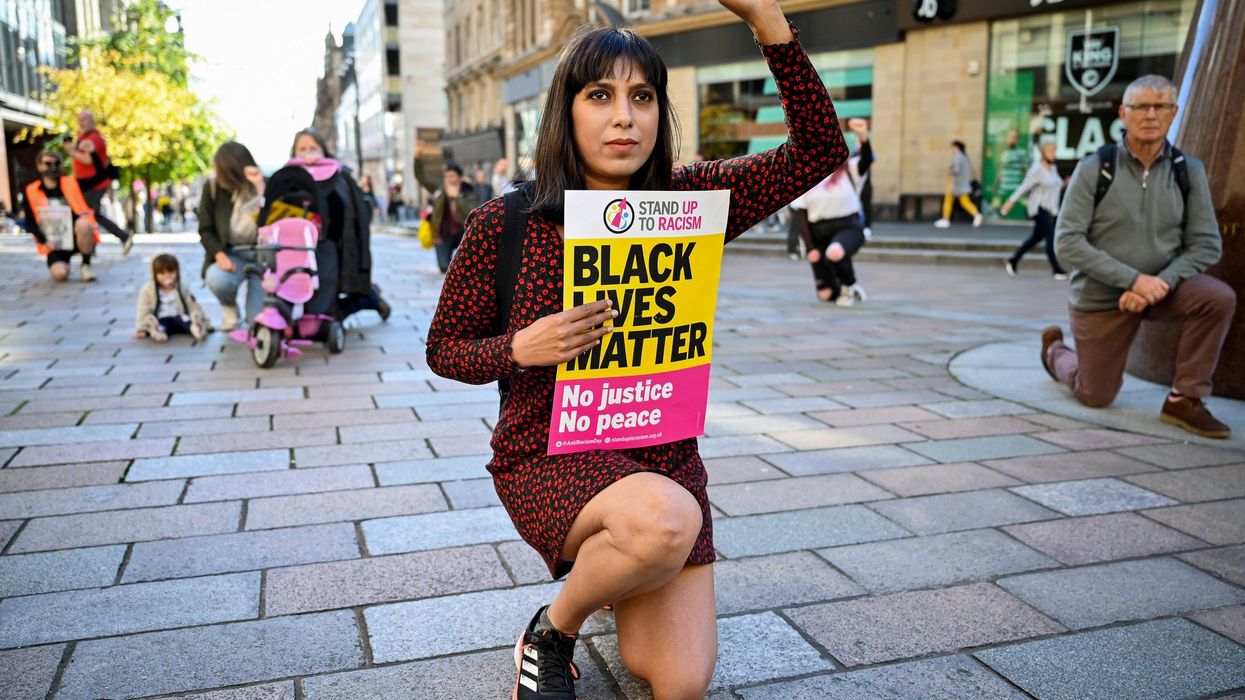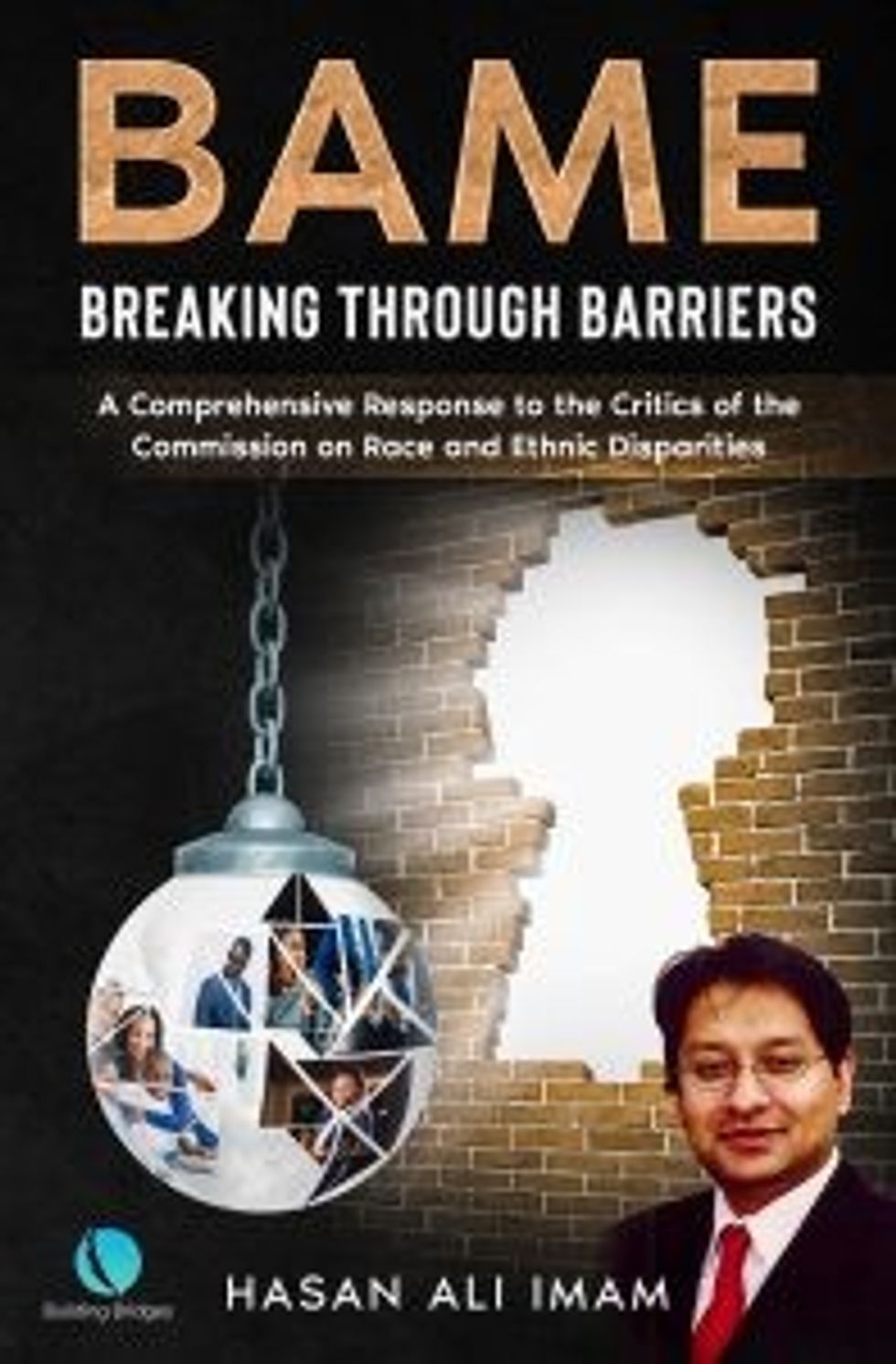THE author of a new book analysing the arguments against a controversial race report which denied institutional racism exists in the UK has revealed his motivations for delving into the debate.
Released earlier this year, the Commission on Race and Ethnic Disparities (Cred) report received a barrage of criticism from anti-racist campaigners and race equality think-tanks after its authors concluded racism no longer stopped ethnic minorities from progressing in society.
“Put simply, we no longer see a Britain where the system is deliberately rigged
against ethnic minorities,” Dr Tony Sewell, the commission’s chairman, said in a foreword to the report.
Some campaigners slammed the report’s conclusions, calling it a whitewash instigated to gloss over deep-rooted problems in society.
Hasan Ali Imam is the author of BAME, Breaking Through Barriers, a new book described as a “comprehensive response to the critics of the Cred report.”
It explores the arguments raised in the Cred report and offers a thorough critique on the issues at hand. Imam said he wanted to delve deeper into the anger of campaigners and understand why so many felt society had not progressed over the past six decades.
“I refuse to accept that we are perpetual slaves to white supremacy and victimisation,” the social commentator told Eastern Eye. “That is why I wanted to engage in dialogue and debate with these critics.”
The report’s point on racism no longer being the main factor to explain disparities should have been celebrated, Imam said. “This is what the civil rights campaigners fought for 60 years ago and, if nothing has changed, then it implies that the anti racist campaigners failed and the organisations and charities that exist to help empower ethnic communities have failed, too,” he said.
“They have not failed, and our communities are in a better place than 60 years ago. It is therefore very peculiar why this issue has angered anti-racist campaigners; it should not have provoked controversy,” he said.
However, Imam stressed his book was a basis for dialogue and understanding and his aim was to defuse the anger, rather than attack the critics. “I believe we can have a grown-up conversation between those who have different views,” he said.
'Race report is a challenge to white supremacy'
Imam believes many people missed a crucial point about the report. Some critics argued the report was not for BAME communities as it was tailored for white communities and that it supported white supremacy.
“I challenge this notion by stating that the report does the exact opposite,” he argued. “White supremacists would like to think they are in a superior and powerful position sitting on the peak of ‘mount privilege’. However, BAME communities are succeeding, and in some cases excelling white communities, in areas such as education.
“Hence, the key take-away for me is that the Cred report is a direct challenge to white supremacy – the critics have inverted this notion.”
On his own initial reaction to the report, Imam said he was struck by the claim that the UK is an example to other countries on what race relation should look like. He noted how Muslims in many parts of Europe were being targeted by far-right Islamophobia that had translated into actual government policies – such as banning halal meat and the headscarf or the niqab.
“I am very lucky to be living as a Muslim in the UK, I would never want to live in Europe,” he said. “When I look through the prism of my Bangladeshi-Muslim experience, I agree with the Cred report that in some cases, the UK is a beacon to Europe, and possibly, the world.
“The critics of Cred should not have been so quick to mock this claim.”
Analysing the criticism
Imam said the only way to make progress is through reasoned and civil debate. Telegraph columnist Calvin Robinson agreed Imam’s book highlights the “importance of reasoned debate and nuance”. “What is the worst thing that could happen? We just agree to disagree,” Imam said.
Prior to the release of the Cred analysis, Imam saw critics condemning the report before it was even released. The early criticism piqued his curiosity, he said.
“Why would critics make judgements on the report before they read it in its entirety? For me it was very unusual to watch this negative feedback so early on,” Imam explained.
He also took note of some of the racial abuse aimed at the commissioners, including Sewell. Imam witnessed Sewell being likened to a Nazi and the Klu Klux Klan (the white supremacist hate group).
“Something was very wrong in the discourse that was unfolding, and this motivated me to take an interest in the report and read through the entire 258 pages,” he said. “I wanted to understand why it caused a commotion. What was meant to be an article metamorphosed into a book. It is my own work and independent of the race commission.”
While conducting research for his book, Imam found that there were 16 areas of convergence between the Cred report and its critics. “These commonalities did not come out during the discussions I heard on TV and radio because the critics were too busy dismissing the report,” Imam remarked. “If the debate was reasoned, then progress would have been made in the discourse on ending ethnic disparities.
“The topic of closing the gaps within BAME communities is too important to be relegated to manufactured rage.”
How has the discussion on race changed?
In recent years, Imam believes the conversation on race has become amplified
and there is heightened awareness of racism and ethnic disparities. For instance, many corporations have accelerated their diversity, equity, and inclusion programmes.
He also regarded the surge of the Black Lives Matter (BLM) movement last year following the murder of George Floyd, a black man killed by a police officer in the United States.
Although he welcomed the new discourse on race, Imam voiced concern on the so-called cancel culture that has emerged in recent years. “The culture of cancelling divergent opinion in the media is a worrying development,” he said.
“Critical Race Theory (CRT) is the divisive mechanism at the centre of conversations in the US, and I believe this is making the US regress, not progress, by fracturing race relations. CRT assumes that white institutions and white communities are inherently racist and that any progress that BAME groups make are at the behest of white communities only. Hence, our communities have no tools nor capabilities to progress on our own.”
He highlighted the work of Robin DiAngelo, a white American academic whom Imam described as the “doyen of white self-deprecation”. DiAngelo, author of White Fragility, is known for her work in the field of whiteness studies and holds workshops on the topic.
According to Imam, her workshops tend to focus on white progressive audiences “where their default status is that of a racist and that whiteness is a shameful state of being that needs to be shed”.
“Well-meaning white anti-racist academics like DiAngelo are steering the conversations on racism towards a dystopia based on CRT, which replaces common human experiences with robust racial fault lines,” warned Imam.
On his own experiences with racial discrimination, Imam said he faced racial abuse when he was growing up in the 1980s. He has also experienced Islamophobia – which intensified following terror attacks.
Imam witnessed the scale of racial disparity while running for parliament in 2010. He campaigned in parts of east London with a high Bangladeshi population and was pained to see the number of Bengali families living in social housing.
However, two decades later, Imam believes the disparities are closing. “I see more prosperity among the Bangladeshi community,” said Imam, who was born in Bangladesh. “There are more millionaires now, which was unheard of 30 years ago and Bangladeshi children are starting to do well in education and entering good professions, as well as becoming entrepreneurs.
“We are on an upward trajectory towards success and new memories are being created on the way.”
BAME, Breaking Through Barriers by Hasan Ali Imam is available on Amazon





